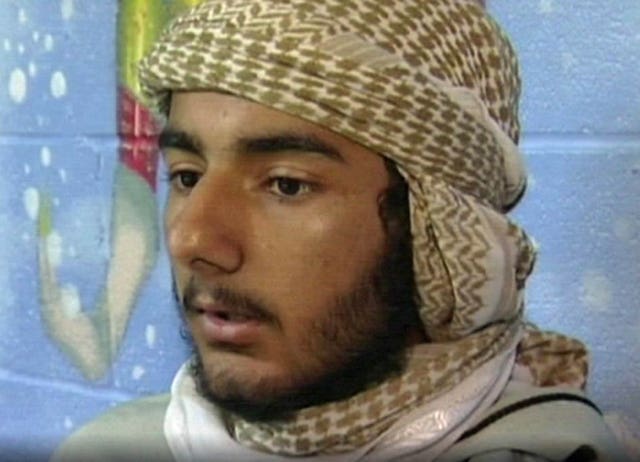Second former Cambridge University student killed at London Bridge named
Saskia Jones, 23, and Jack Merritt, 25, were both killed in the attack on Friday.

Police have named the second victim of the London Bridge attack as former University of Cambridge student Saskia Jones.
The 23-year-old’s family paid tribute to a “funny, kind, positive influence” in a statement released by the Metropolitan Police, confirming she and fellow Cambridge alumni 25-year-old Jack Merritt were fatally stabbed by convicted terrorist Usman Khan.
Khan, 28, was on licence and wearing an electronic monitoring tag when he attended a conference on prisoner rehabilitation hosted by Cambridge University scheme Learning Together at Fishmongers’ Hall near London Bridge.
The attack on Friday afternoon left three other people injured, one of whom is a member of staff, the university’s vice-chancellor Stephen Toope said.
Ms Jones, of Stratford-upon-Avon, Warwickshire, attended the programme as a volunteer, while Mr Merritt was there as a co-coordinator.

A statement from her family said: “Saskia was a funny, kind, positive influence at the centre of many people’s lives.
“She had a wonderful sense of mischievous fun and was generous to the point of always wanting to see the best in all people.
“She was intent on living life to the full and had a wonderful thirst for knowledge, enabling her to be the best she could be.
“Saskia had a great passion for providing invaluable support to victims of criminal injustice, which led her to the point of recently applying for the police graduate recruitment programme, wishing to specialise in victim support.
“This is an extremely painful time for the family. Saskia will leave a huge void in our lives and we would request that our privacy is fully respected.”

Mr Merritt’s family called the 25-year-old a “beautiful, talented boy” in a statement released on their behalf on Sunday, saying he died “doing what he loved”.
“He lit up our lives and the lives of his many friends and colleagues, and we will miss him terribly,” the statement said.
But they asked for his death not to be used to justify introducing “even more draconian sentences” on offenders, after Boris Johnson vowed to take steps to ensure people are not released early when they commit serious offences.
The statement continued: “We know Jack would not want this terrible, isolated incident to be used as a pretext by the government for introducing even more draconian sentences on prisoners, or for detaining people in prison for longer than necessary.”
The attack has prompted the Ministry of Justice to review the licence conditions of every convicted terrorist released from prison, which the Prime Minister says is “probably about 74” people.
Mr Johnson told BBC One’s The Andrew Marr Show that the other individuals were now “being properly invigilated to make sure there is no threat” and called the convicted terrorist’s release from prison “repulsive”.

Khan, who was living in Stafford, was given permission to travel into the heart of London by police and the probation service.
Armed with two knives and wearing a fake suicide vest, Khan was tackled by members of the public, including ex-offenders from the conference, before he was shot dead by police on London Bridge.
The 28-year-old was part of an al Qaida-inspired terror group and was convicted of terror offences in February 2012.
Khan, who had been based in Stoke-on-Trent, was handed an indeterminate sentence for public protection, with a minimum term of eight years – meaning he could have been kept in prison for as long he was deemed to be a threat to the public.
The sentence was quashed at the Court of Appeal in April 2013 and he was given a determinate 16-year jail term, with a five-year extended licence period, under legislation which meant he was released automatically halfway through the sentence.
Sentencing law changed later in 2012, and if Khan was given the same sentence today he would have had to serve at least two-thirds of it.
The medical director for the NHS in London, Dr Vin Diwakar, said on Sunday that one of the three people injured in the attack had been allowed to return home while the other two remain in a stable condition in hospital.





